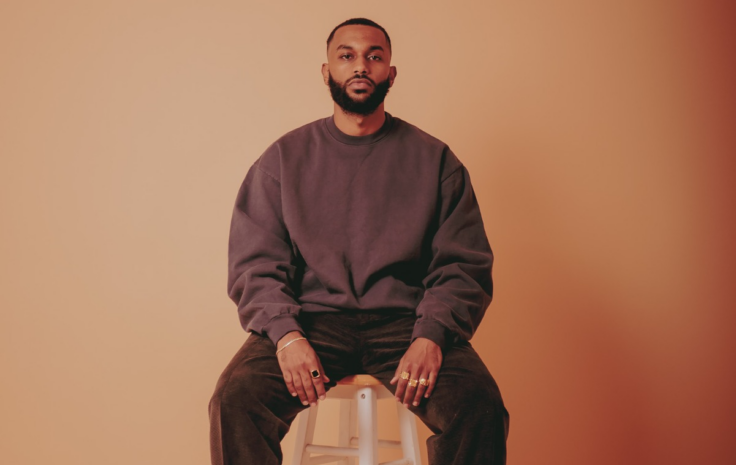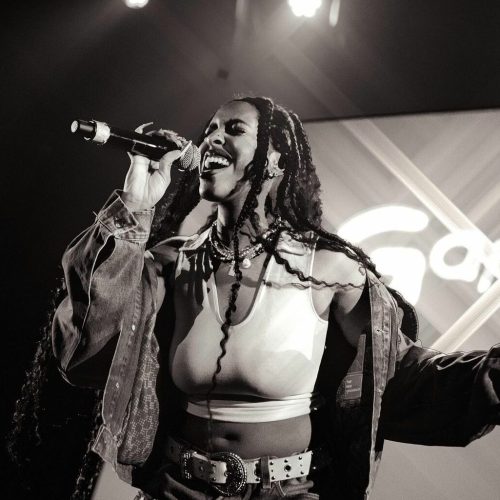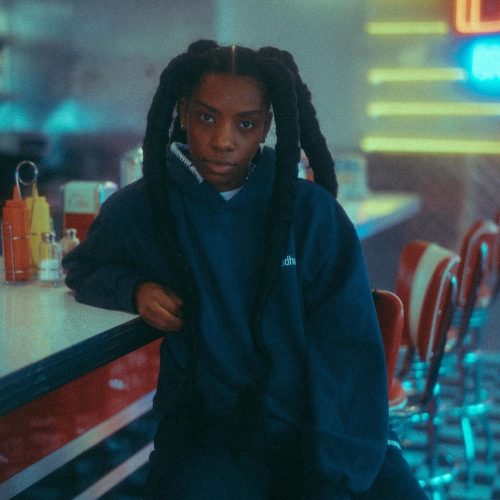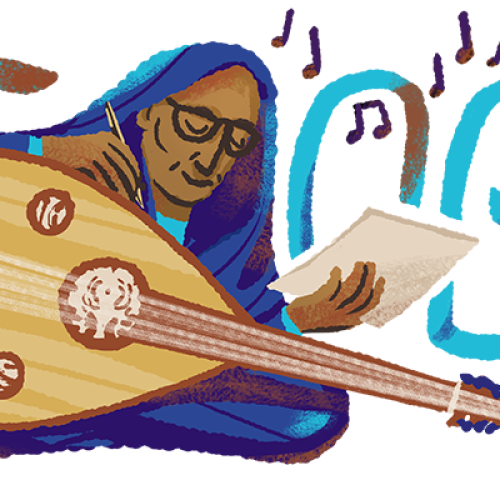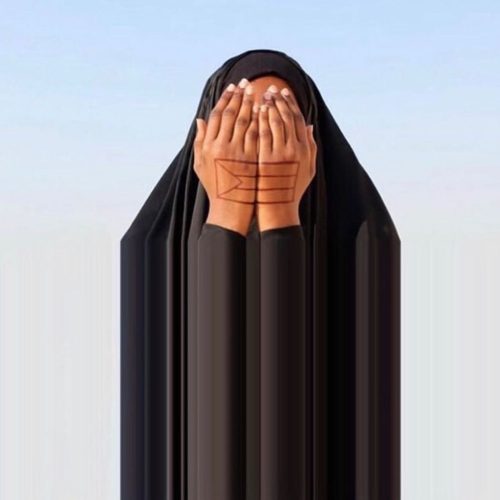Music nowadays has manifested itself into an unknown shape or form that is hard to decipher. It seems that the industry is simply reflecting the fast-paced momentum that the world seems to be heading towards; singles are dropping every millisecond, true-to-life narratives seem to be diminished, and a gap is certainly felt. Somehow, somewhere, the art of storytelling through a series of instruments or samples intertwined with deliberate and hard-hitting lyricism got lost in the search for a few minutes of stardom, lost in an industry that seems to be fixated on an on-demand content overload, where the art forms authenticity is scarce. As a result, longevity seems scarce, and the record is prioritized over the artistry itself. Now, it’s within the hidden depths of our diasporas where you’ll find hidden gems waiting to unleash their undisputed and raw talent to the world. It’s in the heart of each diaspora where you’ll find an artist like Sudanese-American lyricist Gihad Salih, AKA G-SALIH.
The Virginia-based rapper’s lyrical journey is reminiscent of the glory days of hip-hop, where hard-hitting truth was the precedent. There was no room for bullshit— it was real, gritty, and most importantly made you think and question. It was during sixth grade, in Ms.Lee-Byrd’s creative writing class, where the 26-year-old first discovered the power of diction, a power he held onto and consistently channels in his work.
“She had us write a haiku about whatever we were feeling at the time, and would give us prompts to write about every day. That was my first exposure to the actual practice of expressing my thoughts in form,” the artist told MILLE. “She would have us practice these prompts in different poetic devices and even gave us our own journals to write in, and would grade us by how much of ourselves we put into our writing and how authentic it was. Sure enough, I found myself writing years after and recording music on my Apple wired headphones mic,” he continues.
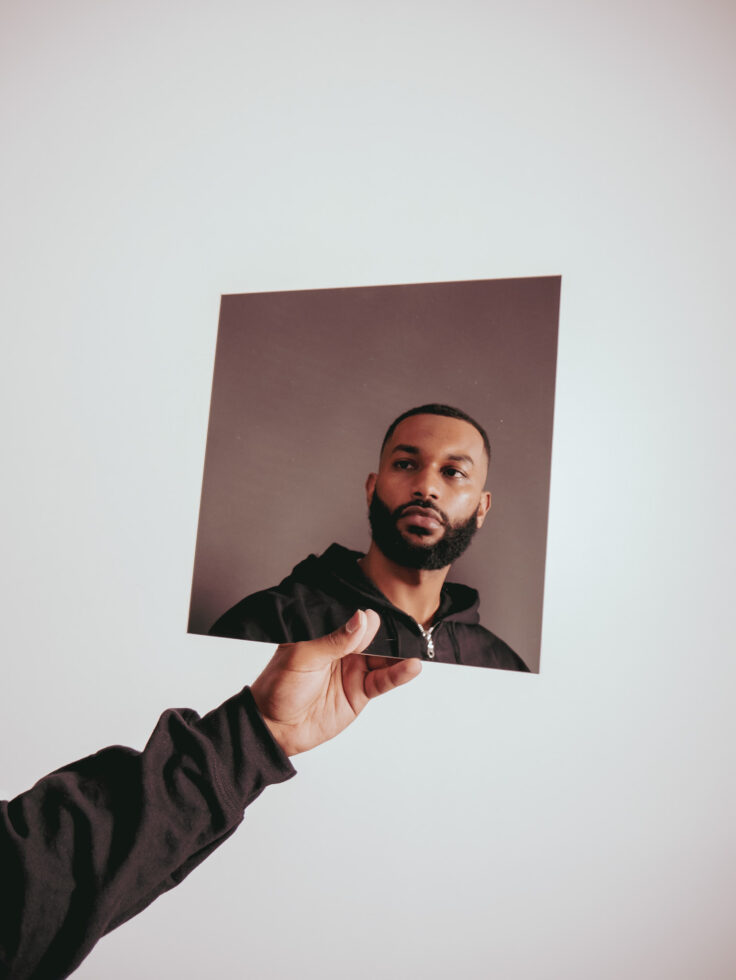
Fast forward to the present day, and G-SALIH never stopped delivering creatively-crafted narratives that are honest and introspective in nature. It’s clear that the rapper spends mindful time punctuating his lyrics. In an ever-so-suave fashion he uses his craft to unpack the many mysteries of just simply being a human being, where he shares revelatory self-portraits in his work. He clearly places his interior work at the center of everything he does. His lyrics consistently act as a form of commentary reflecting the state of the world we live in, covering a plethora of subjects ranging from anxiety, fears, and doubts to motivational narratives about embarking on his musical journey; there is no doubt the young rapper is a compelling storyteller. From one of his earlier Soundcloud tracks titled Life to his most recent releases, G-SALIH’s search for purpose is at the heart of everything he does. “Truth be told, the glitz and glam of any career path have never been my primary source of motivation. I’ve always been introspective and intentional. I’ve always wondered what my role in the world is,” he said. And it shows.
“As I grew as an individual and as an artist, I decided to pursue music with a purpose of inspiring others to introspect and question the world around them with respect to their own unique experiences. As I’ve grown, I’ve found that the fulfillment I sought from my pursuits wouldn’t be from external gratification, fame, or money but that it comes from an ever-evolving journey of appreciating where I am and what I have now,” he added.
As we spoke through a screen, G-SALIH was sitting in his car in what looked like a parking lot somewhere in Virginia, when he spoke to me about his Sudanese parents who immigrated to the United States, where he was born. Having moved to Canada myself at a young age, we both touched upon the unknown territory of being a second-generation immigrant, where your identity is constantly put into question, not knowing where you stand, and in his case it wasn’t knowing where to place himself on the Sudanese-American spectrum, something I could wholeheartedly relate to. Expanding on how he grappled with his Sudanese identity in an environment where the majority of his neighbors were either White or African-American, G-Salih explains, “My house was a microcosm of Sudan. With the scent of bakhoor filling up our rooms, helping our mom and dad make mula7 and kisra, and speaking to us in Arabic. But, outside our home I would do anything to fit in with the other kids around me and not be seen as ‘other’,” he shared.
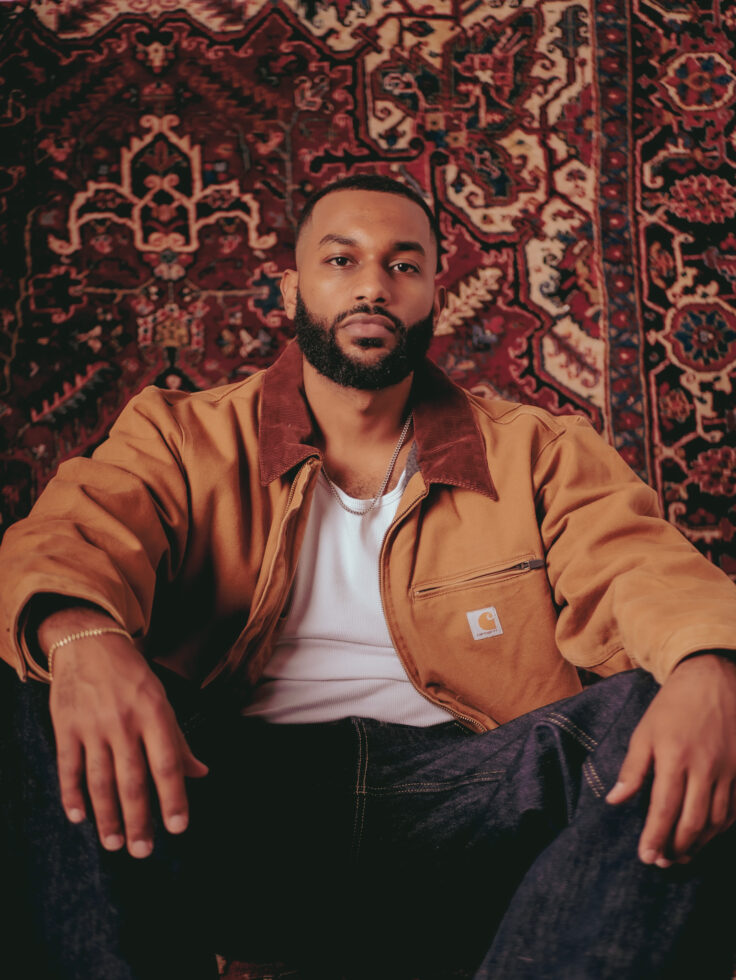
In one of his tracks titled Essential Oils, the rapper honestly depicts the struggles of feeling like the “other.” As he proclaims on his smooth lofi-beat: My moms had the bIock smelling like six diff spices/ I tried to act like them so that they wasn’t aware of it/ I even put a cross around my neck started wearing it/ it worked ‘till when my parents came around speaking Arabic and there go my cover.
Explaining the ethos behind the lyrics and how afterall, there is a certain uniqueness in his Sudanese-American background where he is able to connect to people from all backgrounds, the artist recalls feeling embarrassed when the other kids found out he was different from them. “As I grew and matured, although I ended up building long-lasting friendships with my American homies, I always felt a gap between us. When the revolution started, it seemed as though the Sudanese world got smaller. No matter where you lived, you were Sudanese and you rallied to support our people’s calls for freedom, peace, and justice in Sudan. I met other Sudanese people living all around the world— in other states, Europe, UK, Middle East, in Sudan, and I started connecting with other diasporans. I felt at home. Nowadays, I’m proud of my Sudanese identity, and even further, the uniqueness is the Sudanese-American experience. I’d say it’s one of the things I’m most grateful for,” he says.
As our conversation took a series of twists and turns where we discussed notions surrounding our identity, religion, the growing and questionable impact of artificial intelligence (AI), and unpacking the meanings behind Eckhart Tolle’s, The Power of Now, we both agreed on the importance of constantly looking within, and at least trying to stay present, no matter how hard it can be— as Black Star member Talib Kweli once said, “The most important time in history, is now, the present.”
“Although most people would say I’m pretty outgoing and interpersonal, I spend a lot of time with myself. Reflecting, journaling, questioning, planning, meditating. I’d say I’m pretty spiritual and I’m always curious about how energy is shared and received. The most important thing I do is take time to create. Whether that’s writing music, journaling, drawing, coloring, designing, or planning. If I’m not releasing my energy into something, I feel trapped. It’s interesting, I find myself looking in by putting out. And vice versa. I also practice awareness of presence through meditation, prayer, and mindfulness,” shares the What’s Your Purpose rapper.
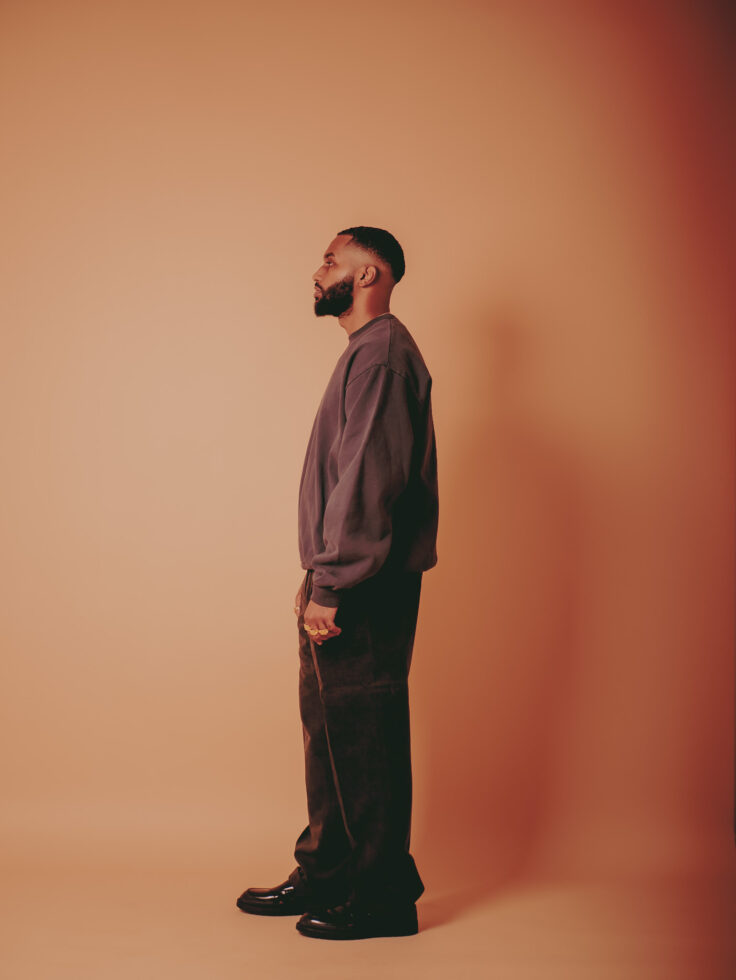
In his time spent, reflecting, journaling, and questioning, his lyrical genius arises thus, manifesting its way into each and every single one of his tracks. Take for example, his most recent drops, Pipe Dream and Same Old. “Pipe Dream is a message for the dreamers, to myself and to anyone else with a dream who’s ever been doubted before. A reminder that no matter the odds, I refuse to ever break the promise I made to myself to follow my dreams,” he mused.
“Same Old is about the struggles of trying to stay positive and maintain a strong mindset in spite of the pressures of life. It plays off of the same old responses we always give when someone asks us how we’ve been or how we’re doing. We all have an egoic tendency to brush off how we feel in an effort to repress our feelings in order to convince ourselves and others that we’re strong. But when the pressure mounts too much, it’s easier for us to run away. In the verse, I’m venting away my stresses to a woman subject (where a lot of men feel comfortable), who feels like an escape for me. I think the inspiration for it draws on topics related to masculinity, mental health, detachment, and temptations,” explains the artist.
Certainly one to respect, G-SALIH is clearly more concerned with his artistic integrity than what’s commercial and when asked what he wants his listeners to take away from his music, he said: “I’d hope my music invites others to think about themselves and the world around them from a different perspective, and inspires them to put the effort in to understand themselves and the role they play in the world more.”
I had a teacher that used to always ask me, “what color are you listening to?” What shade do you think your music is?
Maroon.
Happy place?
Studio.
First concert?
Usher in 2004.
Top three tracks at the moment?
Sprinter by Dave and Central Cee, Masculine by J Hus and Burna Boy, and Cherish The Day by Sade.
Top three artists (currently)?
Kendrick Lamar, Little Simz, and Burna Boy.
Top three artists (all time)?
Kendrick Lamar, Andre 3000, and J. Cole.
Are you a messy creative or an organized creative?
Definitely messy. I’m very organized when it comes to planning and business (literally making a to-do list for every part of my life) but my creative process is all over the place.
An album you’d like to be featured on?
DAMN by Kendrick Lamar, or Black Thought’s Glorious Game.
Movie soundtrack you’d like your music to be featured on?
Creed III.
If you would give yourself advice, what would you say?
Remember to stay present. The moment you’re in right now is the most meaningful one. Appreciate where you are in life and everything that’s in it right now. Because it will only ever be the way it is now, right now. All signs say you’re headed in the right direction. Keep going, stop rushing, and try to enjoy the journey.





